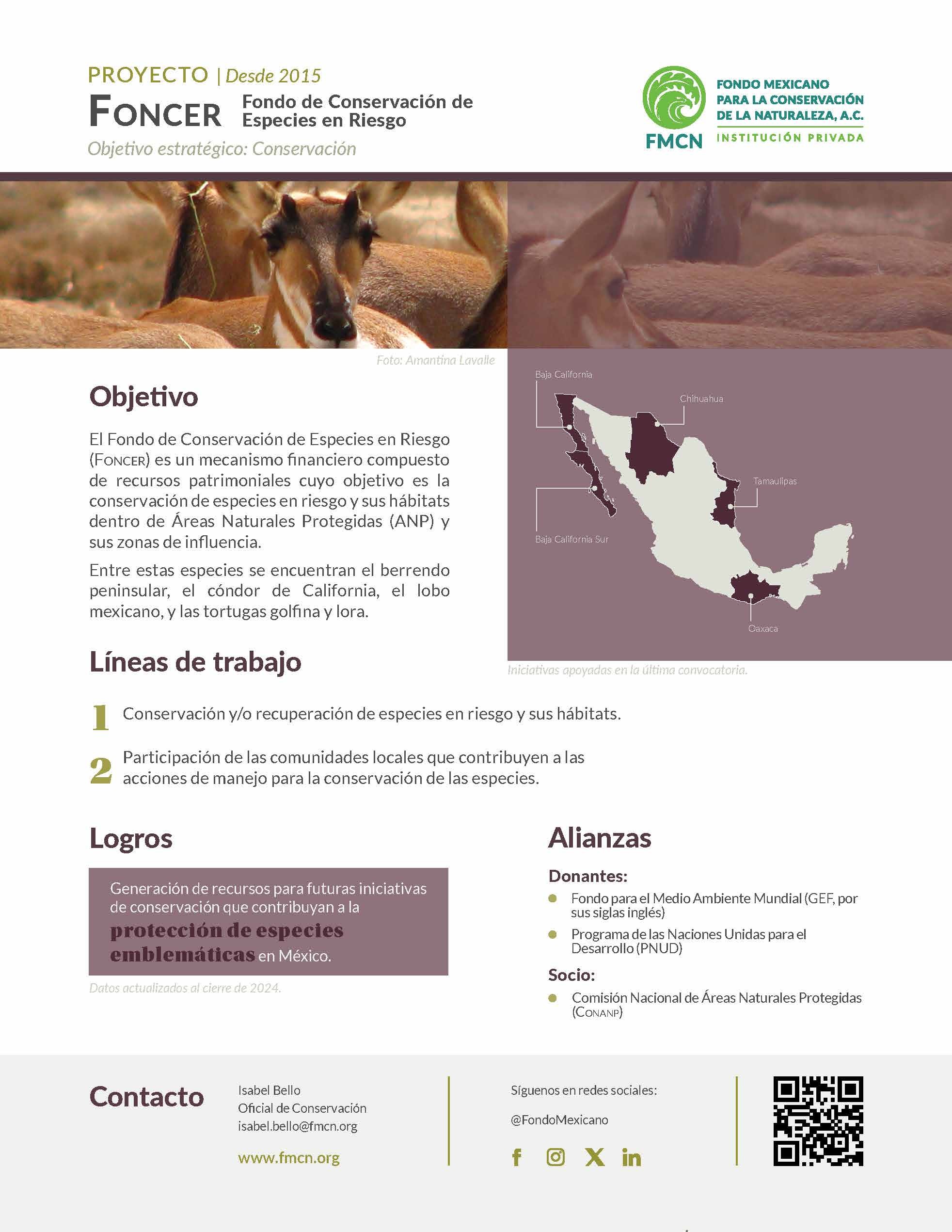Endangered Species Conservation Fund (FONCER)
Each species is vital to its ecosystem
The Project
The Endangered Species Conservation Fund (FONCER, acronym in Spanish) is a financial mechanism composed of endowment resources that aim to conserve species at risk and their habitats within Protected Areas (PAs) and their areas of influence.
Context
Mexico is a megadiverse country, home to approximately 12% of the planet's species. Currently, the country's ecosystems and species are subject to degradation and various forms of direct pressure, both in the PAs and in the surrounding areas.
FONCER is a long-term financial mechanism inspired by the Protected Areas Fund (FANP, acronym in Spanish), designed to reinforce PAs' effective management. This approach seeks to promote the conservation of priority species at risk and the implementation of management strategies by species with a view to the recovery and/or conservation of their populations.
Since its creation in 2015, the financial management of FONCER's endowment resources has been in charge of Mexican Fund for the Conservation of Nature (FMCN, acronym in Spanish), which channels said resources through local organizations responsible for implementing and operating strategic conservation activities for the various species at risk and their habitats.
The lines of work that guide FONCER's actions are:
- Conservation and/or recovery of endangered species and their habitats.
- Participation of local communities that contribute to species conservation management actions.
FONCER preserves critically endangered species, such as the California condor and the Mexican wolf.
Achievements
Allies
- Global Environment Facility (GEF)
- United Nations Development Programme (UNDP)
- National Commission of Natural Protected Areas (CONANP, acronym in Spanish)
